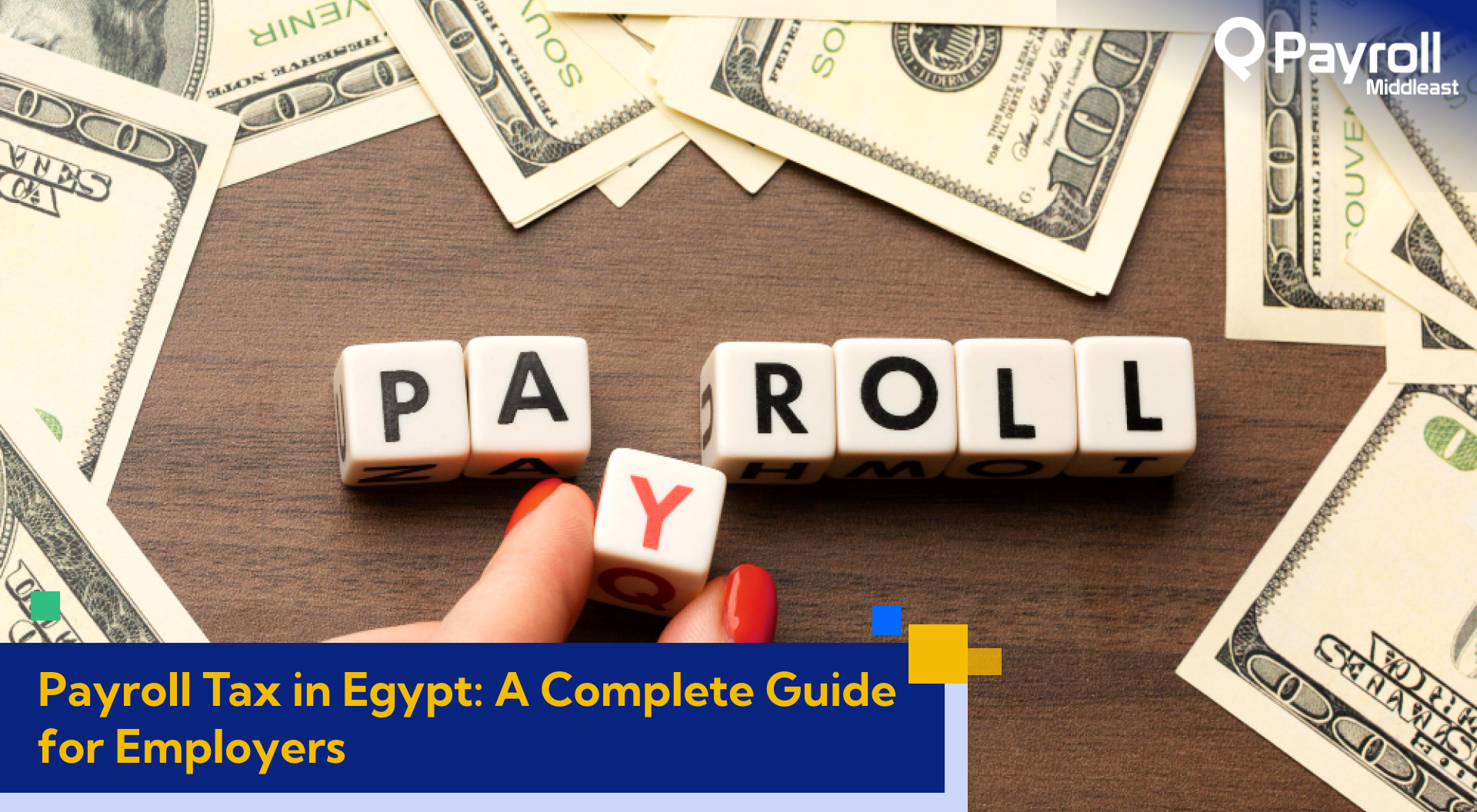The discussion about the minimum wage in Saudi Arabia for many decades has been striking with deep relevance. It is an issue that goes beyond mere figures to encompass social justice and economic viability. As a result, it builds an empowered middle class, driving toward shared prosperity among citizens.
In this article, we are going to take an in-depth look at the minimum wage system prevalent in Saudi Arabia. We will analyze its effects on different fields. Also the importance of its role in building up the economy and the social landscape of Saudi Arabia. Check our priceless insights, unraveling the mysteries of one of today’s most critical issues. Empowering you to confidently navigate Saudi Arabia’s wages regulation era.
What is the minimum wage in Saudi Arabia
The question of what is the minimum wage in Saudi Arabia has been reverberating through business chambers for decades. Being aware of its definition is crucial for employees and employers. Thus, navigating safely through the business climate in the Kingdom.
The calculation of the minimum wage in Saudi Arabia for specific cases may require a thorough search through the regulations. Comprehending the finer details of minimum wage makes it easier to adhere to minimum salary laws so as to make everyone benefit from fair treatment.
The Saudi Arabian minimum wage is not just a monetary figure, it stands for social justice and economic development. By acknowledging its diverse significance, we can further develop policies that empower people for the Kingdom to advance in equality.
Thus, by unraveling the mysteries of minimum wage we open doors to a thriving economy. As a result, workers become valuable assets and well-compensated while businesses operate under favorable predictive conditions. Therefore, whenever the question of what is minimum wage in Saudi Arabia comes up again, you will be sufficiently prepared to make your way through this terrain with ease.
Importance of minimum wage in Saudi Arabia
The minimum wage in Saudi Arabia builds the social and economic landscape of this Kingdom. Its value is critical when it comes to appreciating its complex effects.
- Leveling the Playing Field: The minimum wage provides a support system for job seekers and prevents income discrimination. This minimum standard of payment makes it possible for individuals, to earn enough to meet basic needs.
- Dignity in Every Riyal: The fair wage brings the sense of dignity and value to workers. Recognizing their efforts and rewarding them properly is a measure of improved living standards, it also spurs motivation and productivity.
- Building a Stronger Middle Class: A solid minimum wage establishes the base from which an active and prosperous middle class can emerge. As their purchasing power increases, middle class consumers increase economic activity which may lead to a cycle of prosperity.
- Stimulating the Market: Higher wages lead directly to increased consumer spending and, with it goes vitality into the local market. This higher demand benefits the businesses across all market sectors. Thereby generating employment opportunities which lead to economic growth.
- Boosting Productivity: When employees feel that they are financially secure and they have a sense of value, they usually exhibit high work engagement. This increase in morale leads to increased efficiency and general level of competitiveness, which benefits both individual as well as the economy.
- Attracting Skilled Talent: Establishing a fair minimum wage makes Saudi Arabia more interesting and alluring to qualified workers both home and abroad.
What is the Minimum wage in Saudi Arabia per Month?
The minimum wage in Saudi Arabia 2025 establishes an important bottom for worker compensation. Average wages provide a more holistic view of what is happening with income levels. However, demystifying this average and analyzing its differences among sectors or regions is crucial to comprehending the Saudi Arabian labor marketplace.
- The Median Wage: Although the official statistics can slightly differ. The current median salary in Saudi Arabia is about 10.127 SAR monthly, which exceeds significantly the minimum wage. This middle number provides a slightly better picture of what most workers face; it highlights the wider spread of earnings.
- Regional Variations: Average wages are also affected by geographical differences. The large cities, Riyadh and Jeddah usually pay their workers more than the smaller towns or rural areas. The cost of living influences this aspect. Whereby costs in urban areas determine a higher average income.
It is crucial to recall that the median represents merely one point of data. Experienced and highly qualified professionals can earn much more than the median. While entry-level roles will be below that figure by definition.
In addition, education, training and language skills as well as job specialization all contribute greatly to the individual wages. Negotiation skills and the market demand for particular skill sets also support wage inequalities.
By understanding how the average wage works in Saudi Arabia, we can better comprehend what happens to this nation’s job market. Analyzing the salariat disparities empowers workers to make better choices and employ negotiation skills, supporting a fairer economy
Saudi Arabia Labour Salary Per Day
- For Saudi nationals working in the private sector, there is a stipulated minimum wage of SAR 4,000 per month.
- For expatriate workers (foreign nationals), there is no mandated minimum wage in the private sector — salaries are generally determined by negotiation, industry, skill-level and location.
- In terms of payment frequency, for daily-rated workers the law requires wages to be paid at least once a week.
If you want a typical “per day” salary estimate for a certain type of labour (e.g., unskilled labour, construction helper) I can check recent market rates and convert it for you.
Current Minimum Wage Situation in Saudi Arabia
The minimum wage in Saudi Arabia goes beyond the mere comprehension of its base value, but rather encompasses an intricate appreciation for how it can vary according to the region. Today, we are going to jump into the specific situations of minimum wage on both sides in the private and public sector, showing its panorama for employers and employees.
The sectors are clearly out of sync. Wages differ widely among the various sectors. The average wage in oil and gas, finance, and IT is usually higher than 15000 SAR per month. As public sector jobs are often very stable, they tend to have lower averages that come close to minimum wage.
Both the private and public sectors significantly contribute to defining what a minimum wage in Saudi Arabia looks like. This knowledge allows for constant refinements. Ensuring that minimum wage is working as intended- to promote justice while sustaining the economy. Next we will delve into how much is minimum wage in Saudi Arabia, focusing on each sector.
For Private Sectors
- The minimum wage of full time employees hired by private companies in Saudi Arabia is 3000 SAR. But, there are some exemptions for those who work part-time or during holidays.
- Loopholes and Challenges: However, some companies try to get around the minimum wage. For instance, classifying full-time employees as part-time or mis categorizing job roles. The awareness of such possible back doors enables the employees and governmental institutions to maintain integrity.
- Flexibility and Opportunity: Though compliance with the minimum wage is required, private firms enjoy greater freedom in paying higher salaries. In addition, they offer other benefits to employees as incentives. This dynamic environment promotes competition and in the long run is advantageous to highly qualified workers looking for competitive packages.
For Public Sectors
- Government Guarantee: Public sector employees in Saudi Arabia receive the minimum income as a starting point and provided guaranteed salary scales with packages of benefits. The high stability makes it a magnet for many people seeking long-term employment and steady pay.
- Limited Flexibility: As a result of the preset nature attributed to government salaries, wage increases above minimum are usually tied to promotion or cost of living adjustments. It may reduce the negotiation opportunities for individuals compared to those in the private sector.
- Efficiency and Transparency: The transparent wage system implemented in the public sector contributes to fairness and limits possible loopholes. This promotes equality among employees and makes it easier to implement minimum wage standards.
If you have enough knowledge to understand about wages then find your country.
Impact of Minimum Wage in Saudi Arabia
The issue of the minimum wage in Saudi Arabia is highly contentious. Its impact spreads throughout the entire economic sector, influencing millions of lives. Highlighting its pros and cons enables a constant dialogue and adjustment of policies to ensure all are successful.
The Saudi Arabian minimum wage faces challenges as it has both positive and negative implications. The complexity of its impact requires continuous analysis, dialogues and policy reforms. Therefore, weighing the pros and cons of minimum wage will allow us to develop a scenario that considers workers empowerment, economic growth and prosperity for all.
Positive Effects
- Boosting Worker Well-being: The minimum wage acts as an important safety net. Providing a base that prevents discrimination and allows workers to sustain at bare level. This enhances financial security, which has a positive effect on the quality of life and health outcomes as well as leads to greater personal growth.
- Fueling Consumer Spending: As workers earn more, they spend more. Such a demanding life in the domestic market can spark up business operations from small business to large corporations. This economic activity stimulates employment creation and acts as a catalyst for growth.
- Building a Stronger Middle Class: A strong minimum wage helps to create the middle class that is responsible for ensuring economic stability and long-term success. The middle class is able to buy more goods and services. Consequently increasing domestic demand, reducing inequalities of income distribution and building a strong tax base that creates the sufficient conditions for sustainable development.
- Attracting and Retaining Talent: By setting a competitive minimum wage, Saudi Arabia becomes more appealing to both local and foreign skilled labor forces. This infusion of talent creates a richer and more dynamic workforce, facilitates knowledge transfer processes resulting in the transformation towards a knowledge-based economy.
Negative Effects
- Potential Job Losses: The higher minimum wage would bring unemployment as companies will be forced to automate their tasks or lay off some of their employees due to reduced profits. Although the evidence for this side effect is not consistent, it is important to keep an eye on potential job outsourcing costs and put prevention measures in place if needed.
- Reduced Business Flexibility: The small businesses, running on low margins already will find it very difficult to absorb the cost increase with an increased minimum wage. This may cause closure of businesses especially in the low-skilled sectors and thus affect employment availability.
- Inflationary Pressures: An increase in wages throughout the economy can cause pressure on inflation, where businesses have to raise prices so that they will get enough capital. However, this could erode the purchasing power of minimum wage itself, resulting in a tightrope balance between employee benefits and general economic well-being.
- Market Distortions: Sometimes, when the minimum wage is over the market equilibrium point creates inefficiencies and distortions of labor markets. Misallocation of resources and labor shortages in specific sectors could arise, requiring careful calibration of the minimum wage to reflect market realities.
Payroll Guidelines under Saudi Labor Law
The process of payroll process in UAE system is quiet different from process of payroll in Saudi Arabia because it can be quite challenging especially with the introduction of the minimum wage. This section will provide the necessary knowledge under Saudi Labor Law. As a result, you will be able to competently handle salary matters.
- Frequency of Payment: Salaries must be paid once a month preferable before the end of the working month. This allows predictable and timely availability of income to workers. Also there is a rate of minimum wage in Saudi Arabia per hour.
- Overtime Compensation: A work in excess of the standard 48-hour week must be paid a higher rate ranging from 1.5x to overtime hourly wage level. This encourages fair treatment to prevent the exploitation of labor.
- Vacation Pay: Further, the employees are given 30 days of annual paid leave demonstrating a work-life balance and employee welfare. This compulsory benefit provides an additional level of financial protection to the base minimum wage framework.
- Deductions and Allowances: Deductions such as social security contributions and housing allowance are allowed from the minimum wage.
- Bonuses and Commissions: Base salary is covered by minimum wage. Although not compulsory, bonuses and commissions can increase employee income greatly to encourage good performance.
- Part-Time and Temporary Workers: Although the minimum wage relates to full-time workers, separate rules are in place for part-and temporary employees.
- Probationary Periods: For the probationary period which is usually three months employers have a wide opportunity to offer slightly inadequate wages below minimum wage. Nevertheless, the minimum wage must be paid in full after the probationary period.
Compliance with labor laws such as the minimum wage in Saudi Arabia is important. Understanding their role and resources empowers both employers and employees to seek proper redress if necessary.
Salaries and wages of expatriates in Saudi Arabia
Expats play a key role as they bring their knowledge and skills to fire the engine of growth in the Kingdom. Nonetheless, their connection to the minimum wage in Saudi Arabia for foreigners is distinctive and stimulates questions that need a special approach.
- At the moment, a minimum wage law is made under the Saudi Law of Labor that enumerates provision on wages but excludes foreign workers in the private sector. This leaves the individual contracts and market forces to decide how much an expat should be paid.
- This can lead to questions about possible exploitation and unfairness in payment between expats. However, transparency and fair bargaining become key points of maintaining equality.
- The pay of an expat depends on the skill set, experience and industry. Highly qualified personnel in sectors such as oil and gas will get higher wages compared to people who are just starting out on the first rung of the professional ladder.
Since there is no minimum wage in Saudi Arabia for expats, market forces greatly determine the level of expat salaries. Talent is competed for, and the best wages that are acceptable to employees with specific qualifications as well benefits which reflect on their profession or occupation. Therefore, this makes negotiation an important skill for expats in Saudi Arabia who would love to have equitable compensation.
However, most importantly is that the employers and employees should have a legally binding employment contract which clearly spells out both their rights and obligations. The specifics such as salary, benefits, overtime provisions and termination clauses should also be specified in the contract.
How Does Payroll Middle East Help you in payroll services in Saudi Arabia?
The complexities of payroll in Saudi Arabia can be a daunting task, especially when considering the intricate nuances of the minimum wage and its application to various employee categories. Here is where Payroll Middle East steps in, offering a comprehensive list of payroll companies in Saudi Arabia, simplifying the process and ensuring compliance with all relevant regulations.
Payroll Middle East offers expert consulting services to help you optimize your payroll processes, develop compensation strategies, and navigate complex regulations like the minimum wage. Our insights can help you attract and retain top talent and maintain them while also complying with the changing nature of labor law.
Reach out to us to access specialized professionals, efficient procedures, and revolutionary tools that will empower your business!
FAQs:
What is the current minimum wage in Saudi Arabia?
As of 2025, the minimum wage for Saudi nationals is 4,000 SAR per month.
Who determines the minimum wage in Saudi Arabia?
The Ministry of Human Resources and Social Development (MHRSD) sets and reviews minimum wage regulations.
Are allowances included in the minimum wage calculation?
No, the minimum wage refers only to the basic salary, excluding allowances or bonuses.
What happens if an employer pays below the minimum wage?
Employers may face fines and suspension of company services for violating wage laws.
Is there a minimum wage for domestic workers in Saudi Arabia?
Yes, domestic workers have separate wage guidelines as outlined by the MHRSD.







